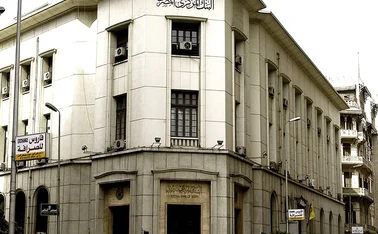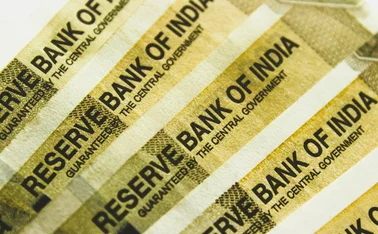
Nigeria bans foreign currency cash deposits
Follows a series of measures aimed at stabilising exchange rate

Nigerian banks will no longer accept foreign currency cash deposits after the central bank banned the practice on August 5 – ostensibly to help prevent "illicit financial flows" in the banking system.
Account holders will still be able to withdraw any foreign currency deposited before the announcement, but in future will have to use wire transfers when moving cash from abroad.
Last week the central bank raised concerns over the amount of illicit funds passing through its system, potentially some $15.7 billion, noting it would "increase its vigilance" on the matter.
There are a host of other factors at play concerning foreign exchange in Nigeria. The domestic currency, the naira, has fallen by around 19% in value in the past year, on the back of a slump in global oil prices.
Nigeria, an oil-exporting country, felt the impact more than most. Faced with what it considered "spurious demand" for foreign exchange, the central bank closed its official window in February and let the Naira fall to around 199 to the US dollar, where it remains now.
Meanwhile, in June, it banned a collection of importers from accessing the foreign exchange markets altogether, with a view to prioritise who could access the "scarce" supply. The central bank's reserves dropped from $37.3 billion to $29.1 billion in the year to June, but have since started to grow again.
Governor Godwin Emefiele said these policies, among a selection of others, had "led to a significant stabilisation in the exchange rate and an improvement in market sentiments", in his remarks at the senate in July.
Nonetheless, Emefiele said, there are longer-term issues to consider. The central bank believes the oil price might not recover all the ground it has lost, while it is unsustainable for Nigeria to continue importing goods at the rate it has been in the future.
"At the heart of the issues that currently confront our nation is the need for us to diversify the structure of our economy from being import-dependent to being an economy that produces what she consumes," he said.
"It is now time for us work together to resuscitate our moribund textile industries, begin to grow and consume our rice, rejuvenate our abandoned palm plantations… and a host of other industries that once helped in creating job opportunities for our people."
Only users who have a paid subscription or are part of a corporate subscription are able to print or copy content.
To access these options, along with all other subscription benefits, please contact info@centralbanking.com or view our subscription options here: http://subscriptions.centralbanking.com/subscribe
You are currently unable to print this content. Please contact info@centralbanking.com to find out more.
You are currently unable to copy this content. Please contact info@centralbanking.com to find out more.
Copyright Infopro Digital Limited. All rights reserved.
You may share this content using our article tools. Printing this content is for the sole use of the Authorised User (named subscriber), as outlined in our terms and conditions - https://www.infopro-insight.com/terms-conditions/insight-subscriptions/
If you would like to purchase additional rights please email info@centralbanking.com
Copyright Infopro Digital Limited. All rights reserved.
You may share this content using our article tools. Copying this content is for the sole use of the Authorised User (named subscriber), as outlined in our terms and conditions - https://www.infopro-insight.com/terms-conditions/insight-subscriptions/
If you would like to purchase additional rights please email info@centralbanking.com
Most read
- Profit inflation and monetary policy: weighing the evidence
- What is forecasting for? Bernanke and the future of BoE projections
- Central bank of the year: Central Bank of Brazil







